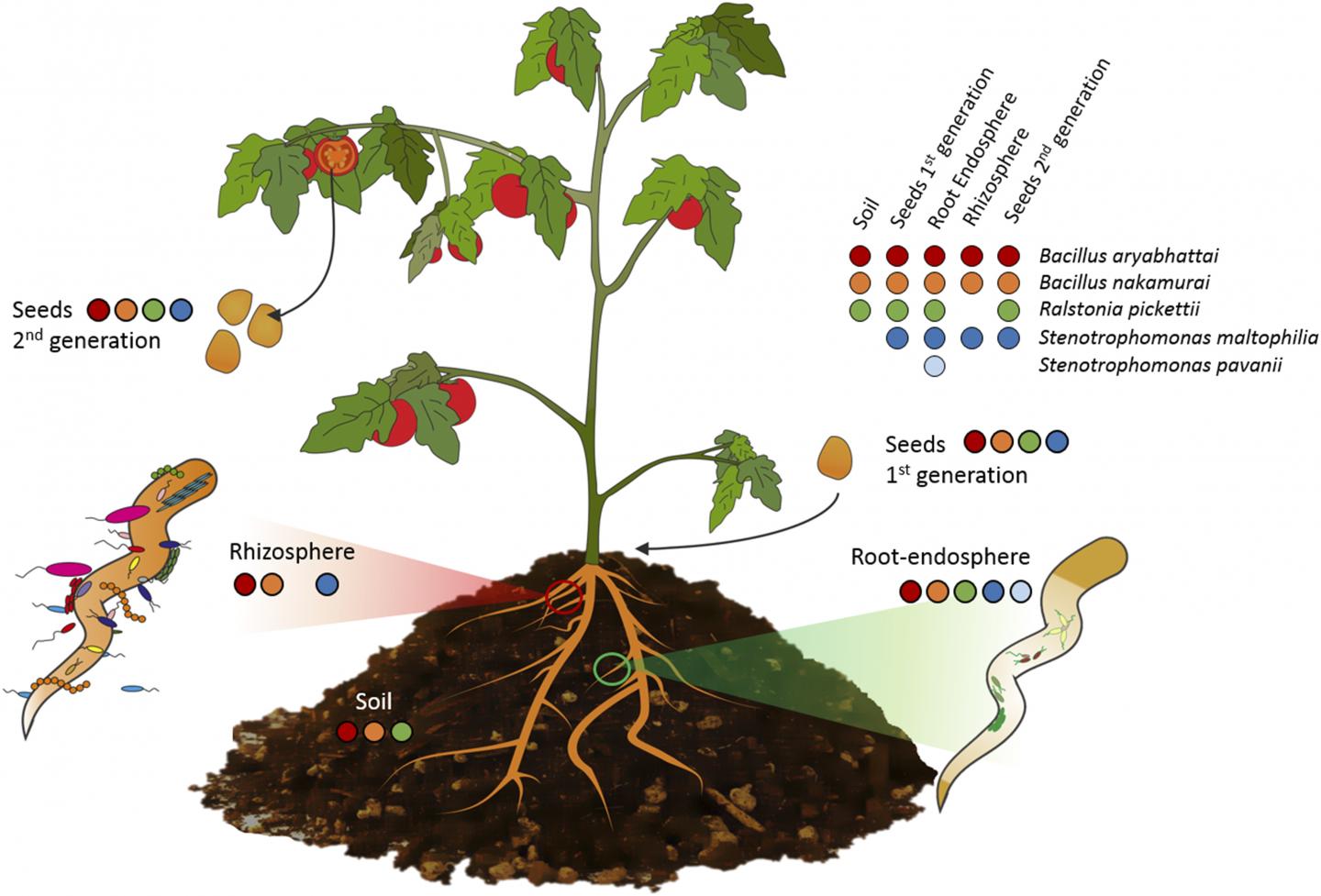
Credit: Alessandro Bergna, Tomislav Cernava, Manuela Rändler, Rita Grosch, Christin Zachow, and Gabriele Berg
St. Paul, MN (March 2019)–Recent advances in next-generation sequencing technologies have allowed scientists to access and assess previously undetectable plant microorganisms. Scientists have long known that various plant-associated microorganisms contribute to plant health and productivity but were unable to analyze them in plant seeds due to technical restrictions. Thanks to the enhanced development of high-throughput sequencing methods, plant seed microbiomes have been increasingly studied.
In a study published in the fully open access Phytobiomes Journal, a group of scientists led by Tomislav Cernava utilized this new technology and were the first to assess the seed microbiomes of two successive plant generations of tomato plants, selected due to its importance to the human diet. The team identified and characterized microbial communities in different compartments of the tomato.
The research showed that seed endophytes (microorganisms found in inner seed tissues) have distinct compositions and harbor different beneficial bacteria. The team also found that plant seeds were an important vector for the transmission of beneficial microorganisms across generations. Notably, they found that the seed is an important vehicle of plant growth-promoting bacteria.
This novel discovery has an impact for the design of seed treatment. Cernava explains: “These findings provide a basis to further explore how plant seeds can be specifically equipped with beneficial microorganisms and provide the basis to develop sustainable alternative to chemical inputs, such as fertilizers and pesticides, in agriculture.”
More details about this study can be found in Tomato Seeds Preferably Transmit Plant Beneficial Endophytes published March 6, 2019 in Phytobiomes Journal Volume 2, Number 4.
###
Media Contact
Ashley Bergman Carlin
[email protected]
Related Journal Article
http://dx.




